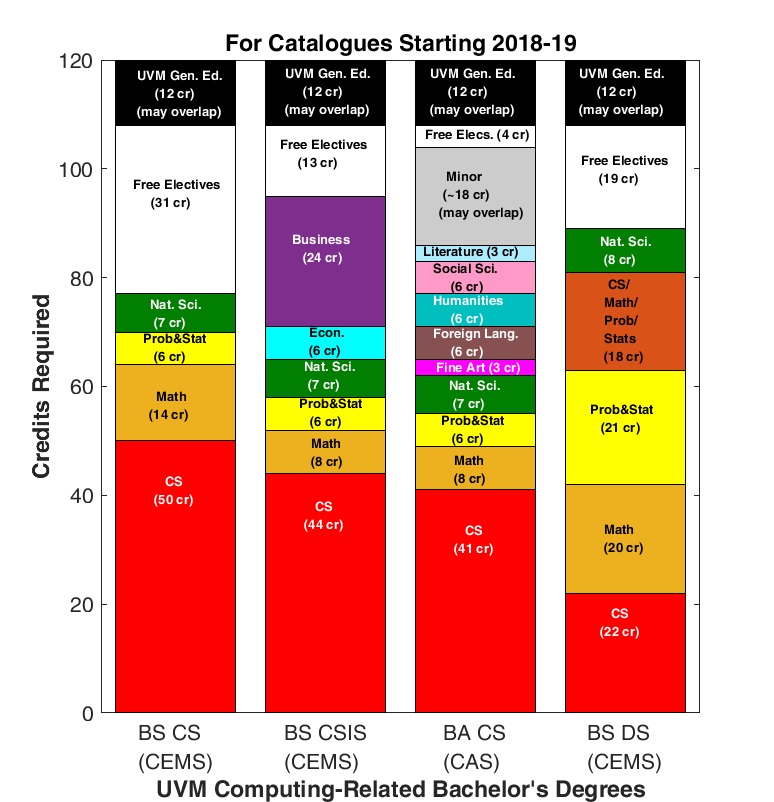Bachelor of Science in Computer Science (B.S. CS)¹
This program provides the most depth in computing and mathematics, but also the most flexibility in the remaining electives. Graduates are well-prepared for computing careers in industry or further graduate study in computer science. A minor is encouraged, but not required.
Bachelor of Science in Computer Science and Information Systems (B.S. CSIS)¹
This program combines a computer science major with the business core (more than a minor, less than a 2nd major) and prepares students to work in a business environment or pursue an MBA.
Bachelor of Arts in Computer Science (B.A. CS)²
This program provides a computer science major in the context of a liberal arts education. Students are required to complete a minor as well as take courses in humanities, social sciences, fine arts, literature, and foreign language.
Bachelor of Science in Data Science, (B.S. DS)¹
This transdisciplinary program provides students with a strong education at the intersection of computer science, mathematics, and statistics, as a foundation for making sense of the plethora of Big Data now prevalent in virtually all application domains. A minor is encouraged, but not required.
Accelerated Master of Science in Computer Science (M.S. CS)³
Qualified students in all of the above programs may apply to the Accelerated MS program in their junior year, enabling them to earn a Master’s degree, in either Computer Science or Complex Systems & Data Science, in one additional year beyond earning their Bachelor’s degree.
¹Offered through the College of Engineering & Mathematical Sciences (CEMS), which offers strong support for professional development, including a dedicated internship coordinator. ²Offered through the College of Arts & Sciences (CAS), which emphasizes a Liberal Arts education, providing students with a wide array of transferable skills applicable to any number of professions. ³Offered through the Graduate College.Not sure which Major is for you?
If you want to start a computing major but are not sure which program, we suggest the following curricula for your first semester to keep your options open:
- 3 credits: CS 021 Computer Programming I (taught in Python; the most important course to start with)
- 1 credit: CS 050 Seminar for new CS majors (not required, but a fun and useful intro to CS at UVM)
- 3 credits: CS 008 Intro to Web Development (if leaning toward CS or CSIS) or CS 087 Intro to Data Science (if leaning toward DS)
- 3-4 credits: Math 21 Calculus I (or Math 10, if your MRT score is below 12)
- 3-credit writing class: ENGL 001 (most students) or a TAP class (if you're in the College of Arts & Sciences) or HCOL 85 (if you're in the Honor's College)
- 3-credit elective (ECON 11 if you're considering CSIS)
See a CS advisor for help in keeping your options open and in deciding which CS program is for you.
Transfer Students
If you are a transfer student, please refer to the University's Transfer Student Frequently Asked Questions (FAQs).
AP Credits
Credit is granted for AP exam scores of 4 or 5 in most cases; scores of 3 are accepted in some areas. Please consult the University's AP Guide for more information.

